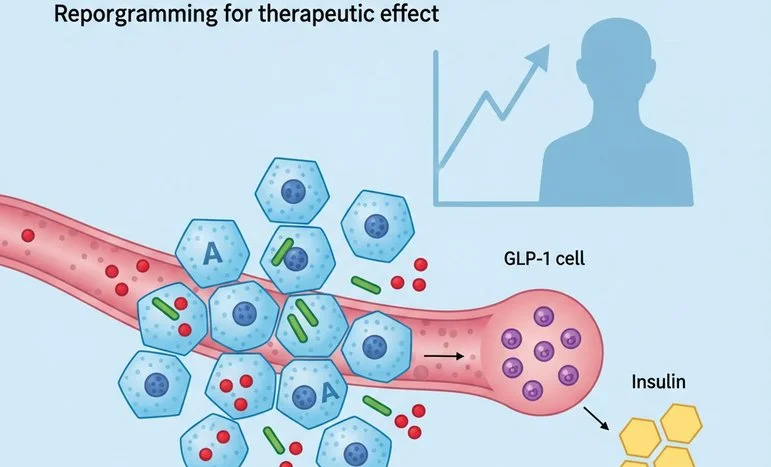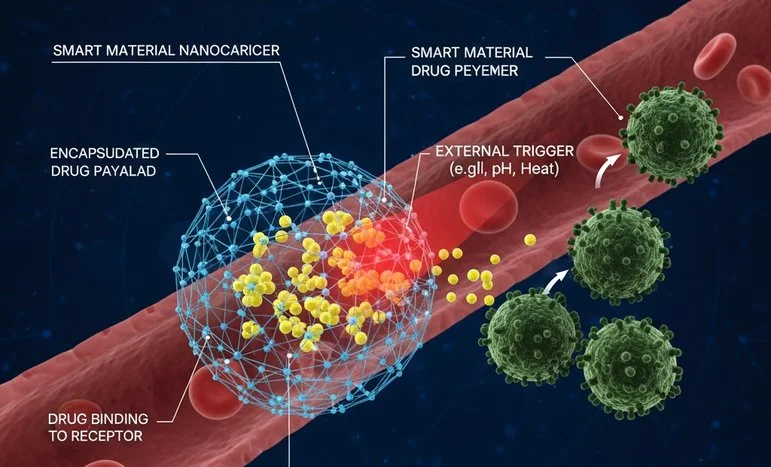
Duke Scientists Discover Pancreatic Alpha Cells Produce GLP-1, Boosting Diabetes Treatment Potential
Pancreatic Alpha Cells Produce GLP-1, Opening New Paths for Diabetes Therapy
Researchers at Duke University have made a groundbreaking discovery: pancreatic alpha cells, traditionally known for producing glucagon, also generate GLP-1 (glucagon-like peptide-1). GLP-1 is the hormone targeted by diabetes drugs such as Ozempic and Victoza, which stimulate insulin secretion from beta cells. This revelation suggests that alpha cells could play a direct therapeutic role, potentially enhancing treatment options for patients with diabetes.
Understanding GLP-1 and Diabetes
GLP-1 is a key incretin hormone that regulates blood sugar by:
- Stimulating insulin release in response to meals.
- Inhibiting glucagon secretion, reducing hepatic glucose production.
- Slowing gastric emptying, helping control postprandial glucose spikes.
Current diabetes therapies leverage GLP-1 analogs to improve glycemic control, mainly through beta cell stimulation. Discovering endogenous GLP-1 production by alpha cells offers a new dimension to treatment strategies.
Research Methodology
The Duke team employed a combination of techniques to identify GLP-1 production in alpha cells:
- Single-cell RNA sequencing: Detecting gene expression for GLP-1 synthesis.
- Immunohistochemistry: Confirming GLP-1 protein within alpha cells.
- Functional assays: Measuring hormone secretion under various glucose conditions.
These methods confirmed that alpha cells not only produce GLP-1 but also release it in response to glucose, providing a physiological contribution previously unappreciated.
Implications for Diabetes Management
- Broader Hormone Sources: Targeting alpha cells could enhance endogenous GLP-1 levels, complementing beta cell activity.
- Novel Drug Development: Pharmaceutical approaches might focus on stimulating alpha cell GLP-1 production for sustained glucose control.
- Combination Therapies: Integrating alpha-cell-targeted interventions with existing GLP-1 analogs could improve efficacy and reduce side effects.
- Type 2 and Type 1 Diabetes: While beta cells are compromised in type 2 diabetes and absent in type 1, alpha cell GLP-1 production may provide alternative pathways to regulate glucose.
Potential Benefits
- Reduced reliance on exogenous drugs: Enhancing natural GLP-1 production could lower doses of synthetic GLP-1 analogs.
- Improved metabolic outcomes: Alpha cell-driven GLP-1 release might help maintain more stable blood sugar levels.
- Expanded treatment window: Patients with limited beta cell function may still benefit from alpha cell activity.
Challenges and Considerations
- Regulatory balance: Alpha cells also produce glucagon; manipulating GLP-1 production must avoid excess glucagon secretion.
- Individual variability: The degree of alpha cell GLP-1 output may differ between patients.
- Long-term effects: Sustained stimulation of alpha cells requires evaluation for cellular stress or exhaustion.
Future Directions
The discovery opens multiple avenues for research:
- Drug Screening: Identifying compounds that selectively enhance alpha cell GLP-1 production.
- Gene Therapy: Exploring methods to boost alpha cell hormone synthesis.
- Clinical Trials: Testing alpha cell-targeted therapies in diabetic patients.
- Integrated Models: Studying interactions between alpha and beta cells to optimize treatment strategies.
The finding that pancreatic alpha cells produce GLP-1 challenges conventional understanding of glucose regulation and offers new opportunities for diabetes therapy. By leveraging alpha cell contributions, researchers and clinicians may develop more effective and versatile treatments, potentially improving quality of life for millions of patients worldwide. This innovation represents a significant leap toward precision endocrinology, integrating knowledge of cellular function with next-generation therapeutics.
We appreciate that not everyone can afford to pay for Views right now. That’s why we choose to keep our journalism open for everyone. If this is you, please continue to read for free.
But if you can, can we count on your support at this perilous time? Here are three good reasons to make the choice to fund us today.
1. Our quality, investigative journalism is a scrutinising force.
2. We are independent and have no billionaire owner controlling what we do, so your money directly powers our reporting.
3. It doesn’t cost much, and takes less time than it took to read this message.
Choose to support open, independent journalism on a monthly basis. Thank you.



















